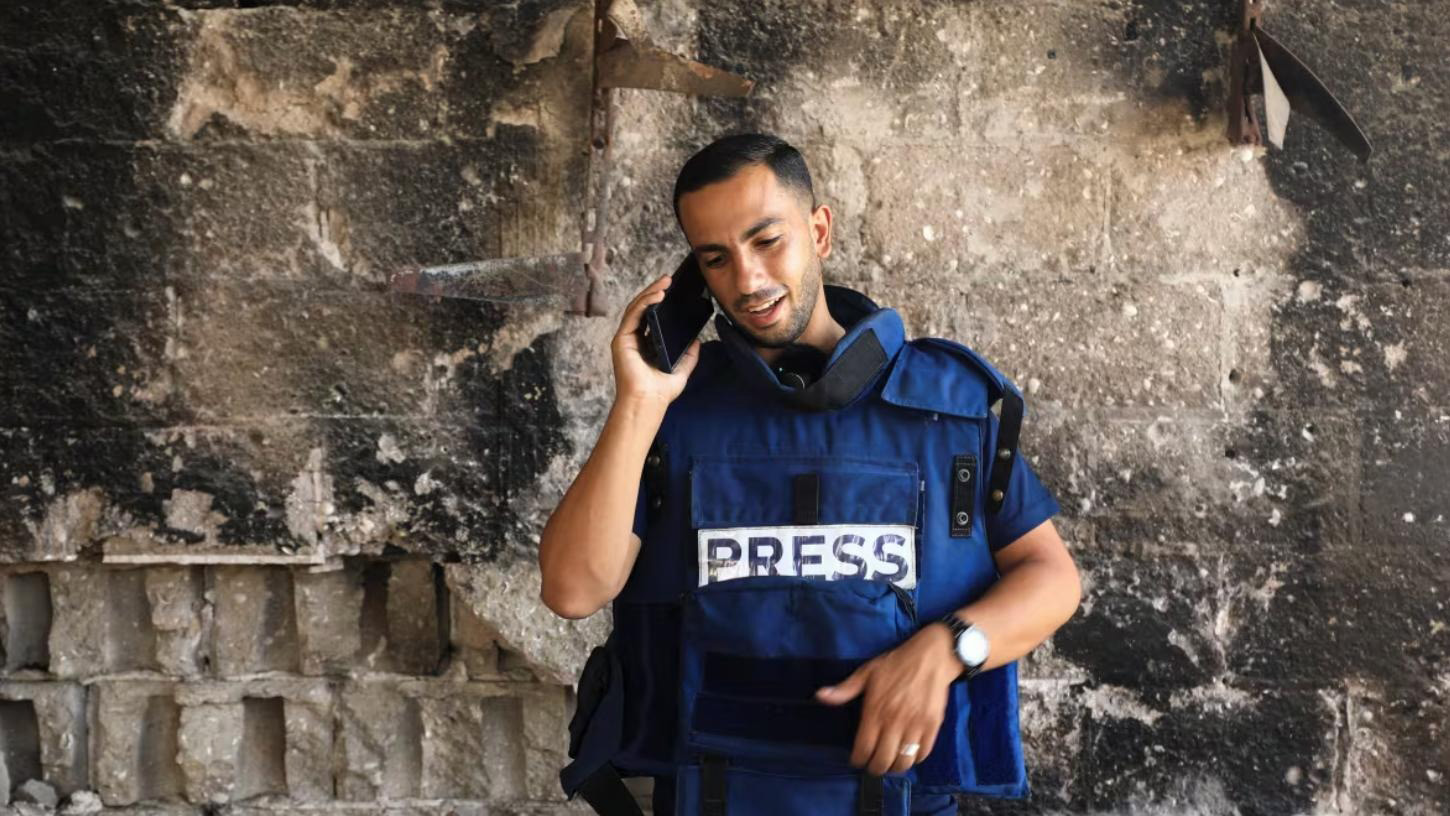The day after Anas al-Sharif was martyred by Israeli occupation forces, reporter Mohammed Abu Salama shared his eulogy for his colleague and dear friend. “Anas was a mountain of a man,” he said, and then said again: “One of the mountains of Jabalia. A mountain from Jabalia camp.”
Al-Sharif, like so many of his brothers with cameras on the front lines, foresaw his own martyrdom. An hour before he was killed in a targeted Israeli airstrike outside Al-Shifa hospital, he gave us one last warning: “If this madness does not end, Gaza will be reduced to ruins, its people’s voices silenced, their faces erased.” He leaves behind his wife, Bayan; his one-year-old son, Saleh; and his four-year-old daughter, Sham.
Born in 1996, al-Sharif spent more than half his life under brutal Zionist siege. He was four years old when the Second Intifada began, 12 during Operation Cast Lead, 18 at the onset of the 2014 war, and 20 on the first day of the Great March of Return in 2018. At 28 he was buried, his body returned to the land he died protecting. Over the last two years, people of conscience around the world recognized his courageous, fearless, and unrelenting coverage of the genocide in Gaza. Despite the constant threats to his life and person, his sign-off remained the same, a defiant promise: “The coverage continues.”
In December, after his colleague Fadi al-Wahidi was shot in the neck by the IOF and rendered paraplegic, al-Sharif wrote for The New York War Crimes about the necessity of securing a medical evacuation for his friend. He refused our payment, insisting that it was his duty as a journalist: to share the information, to tell the story. Al-Wahidi remembered his comrade as someone who “never left my side. Despite the army’s threats to him, he would come to me and not leave me alone; he comforted me, endured with me, and lifted my spirits.”
The love al-Sharif possessed for his people was reciprocated, apparent in the footage of him reporting the news of a ceasefire in January. “After more than a year, we can begin to discuss the removal of this helmet that exhausted me … this armor that was a part of my body,” he said. The men around him removed his vest and hoisted him on their shoulders as he recited the names of his martyred colleagues: Ismail al-Ghoul, Roshdi Sarraj, Hamza Dahdouh. “We announce, from Gaza and Gaza City, the news of a ceasefire.” Al-Sharif, over the months to come, often spoke of his desire to relive those moments; we too convinced ourselves that he would live forever, and imagined his voice announcing not only the last day of this war, but the day Gaza is liberated from siege and Palestine is free.
“The Nazi Israeli army insisted in cold blood to assassinate Anas and Mohammad Qreiqeh, and all the fellow journalists,” Mohammed Abu Salama tells us in this eulogy. “But from this position, in the wake of Anas’ passing … We will continue the coverage! We will continue the coverage despite the spiteful ones … We will continue to cover it for the sake of all our fellow journalists, and whatever comes down from the sky, the earth will receive.”
Anas al-Sharif was born in Jabalia and remained in Jabalia. “I will not leave Gaza unless it is to heaven,” he wrote to a colleague who asked why he would not evacuate. It is this dedication to the land, to his people, and to the principle of liberation by which we remember al-Sharif. We must honor him by taking up this duty to truth and to struggle. And in his memory, we must never abandon Gaza.
Rest in power, Anas. Glory to the martyrs.
Click to download martyr posters for Anas and his colleagues. These posters are designed to be printed in full color on 11 x 17" paper.


